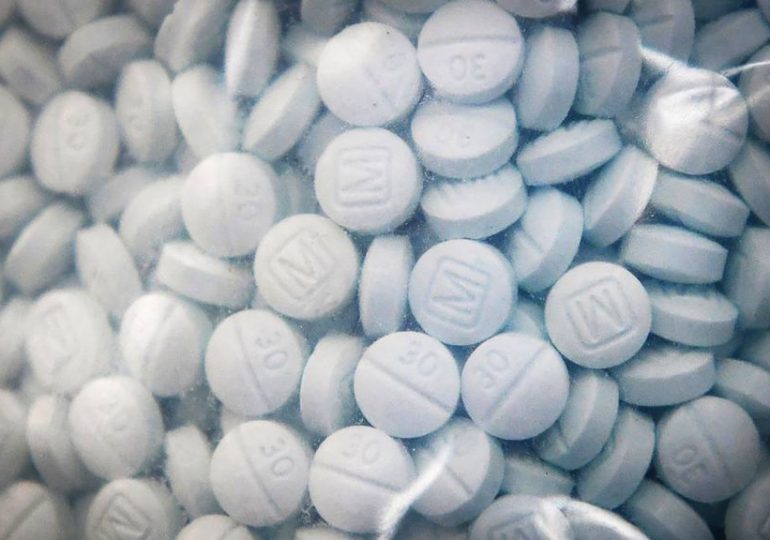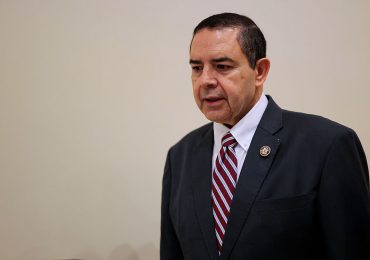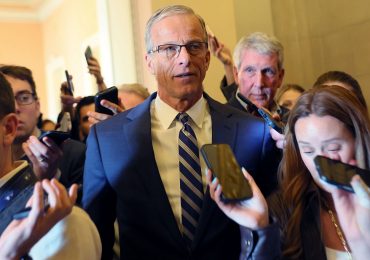Joe Biden and his Chinese counterpart, Xi Jinping, are set to announce an agreement that would see Beijing crack down on the manufacture and export of fentanyl, according to people familiar with the matter, potentially delivering the U.S. president a major victory.
Under the deal — which is still being finalized — China would go after chemical companies to stem the flow of both fentanyl and the source material used to make the deadly synthetic opioid, according to the people, who spoke on condition of anonymity to discuss the agreement.
[time-brightcove not-tgx=”true”]
In return, the Biden administration would lift restrictions on China’s forensic police institute, the people said, an entity the U.S. alleges is responsible for human-rights abuses.
The agreement, set to be announced Wednesday when Biden and Xi meet in San Francisco on the sidelines of the Asia-Pacific Economic Cooperation summit, would mark a win for the White House on an issue voters say is a priority for the 2024 election.
Republicans have assailed the administration over its handling of fentanyl trafficking, turning it into a liability for Biden’s chances of winning a second term.
Read More: How Conservatives Are Changing Their Mind on Legalizing Fentanyl Test Strips
A White House National Security Council spokeswoman declined to comment. China’s Ministry of Foreign Affairs did not immediately respond to a request for comment.
“We’re hoping to see some progress on that issue this coming week,” National Security Advisor Jake Sullivan told reporters Monday. “That could then open the door to further cooperation on other issues where we aren’t just managing things but we’re actually delivering tangible results.”
Senate Majority Leader Chuck Schumer said Xi “seemed receptive to our concerns” in October when lawmakers raised the issue with the leader during a visit to China.
U.S. officials consider the deal a potential breakthrough but caution stringent enforcement is necessary to produce results. Officials said it will take time to assess whether Beijing follows through.
Any deal could be vulnerable to collapse if fragile ties between Beijing and Washington deteriorate over critical comments from the Biden administration, some China experts warned.
“China’s agreements have an unstated condition: Void if you criticize Xi and the Communist Party,” said Derek Scissors, senior fellow at the conservative American Enterprise Institute. “If the Biden administration isn’t pro-China in 2024, enforcement of a fentanyl deal will fade away.”
Health crisis
Mexican cartels are largely responsible for the export of fentanyl, a synthetic opioid 50 times more powerful than heroin and 100 times more powerful than morphine. The cartels often use Chinese components to make the drug.
The problem has dogged multiple U.S. presidents, as overdose deaths have spiked across the country. Former President Donald Trump in 2018 announced an agreement with Xi, under which Beijing vowed to designate fentanyl as a controlled substance.
The public-health crisis fueled by the drug has only intensified since then.
Read More: The Unique Challenges of the Fentanyl Epidemic
More than 150 people in the U.S. die each day from overdoses related to synthetic opioids like fentanyl, according to the Centers for Disease Control and Prevention. Such overdoses increased more than seven-fold between 2015 and 2021, according to the National Center for Health Statistics.
San Francisco, the host for this week’s APEC summit, is one of many municipalities grappling with the fallout from a surge in addiction and overdose deaths.
“Fentanyl has really devastated our city, like no other drug we’ve ever experienced within my lifetime,” San Francisco Mayor London Breed said Monday in a Bloomberg News roundtable.
Breed urged Xi to cooperate to stop the flow of fentanyl, saying it had strained U.S.-China ties.
“I would ask him to work with the U.S. and to ensure that the resources that are being sent out of China, that come into either the U.S. or Mexico, are cut off to the fullest extent possible,” she said during a separate interview with Bloomberg TV.
Lifting sanctions
China has for months pressured the U.S. to take the Institution of Forensic Science of the Ministry of Public Security off its blacklist. The Commerce Department in 2020 restricted those agencies from accessing U.S. technology over allegations they are involved in repression of ethnic Uyghurs in China’s Xinjiang region.
“The U.S. sanctions against Chinese companies and citizens will add more obstacles to China-U.S. counter-narcotics cooperation,” a Chinese embassy spokesperson in Washington said in May.
The Biden administration this year took steps to stem the crisis but is limited in what it can achieve without Beijing’s help.
The Justice Department has investigated and prosecuted companies in China that ship precursor chemicals to Mexico. The Treasury Department has designated more than two dozen people and entities allegedly involved in the fentanyl trade. The White House has asked Congress for roughly $1.2 billion to target drug traffickers.
Republican presidential hopefuls have vowed to take even more drastic measures.
Trump, the 2024 GOP frontrunner, has threatened a full naval embargo on drug cartels and said he would deploy the U.S. military to fight them. He has also called for drug dealers to get the death penalty.
Florida Governor Ron DeSantis has also said he would use the U.S. military against Mexican drug operations. Former UN Ambassador Nikki Haley said the U.S. should end normal trade relations with China until “they stop murdering Americans.”
Leave a comment
















